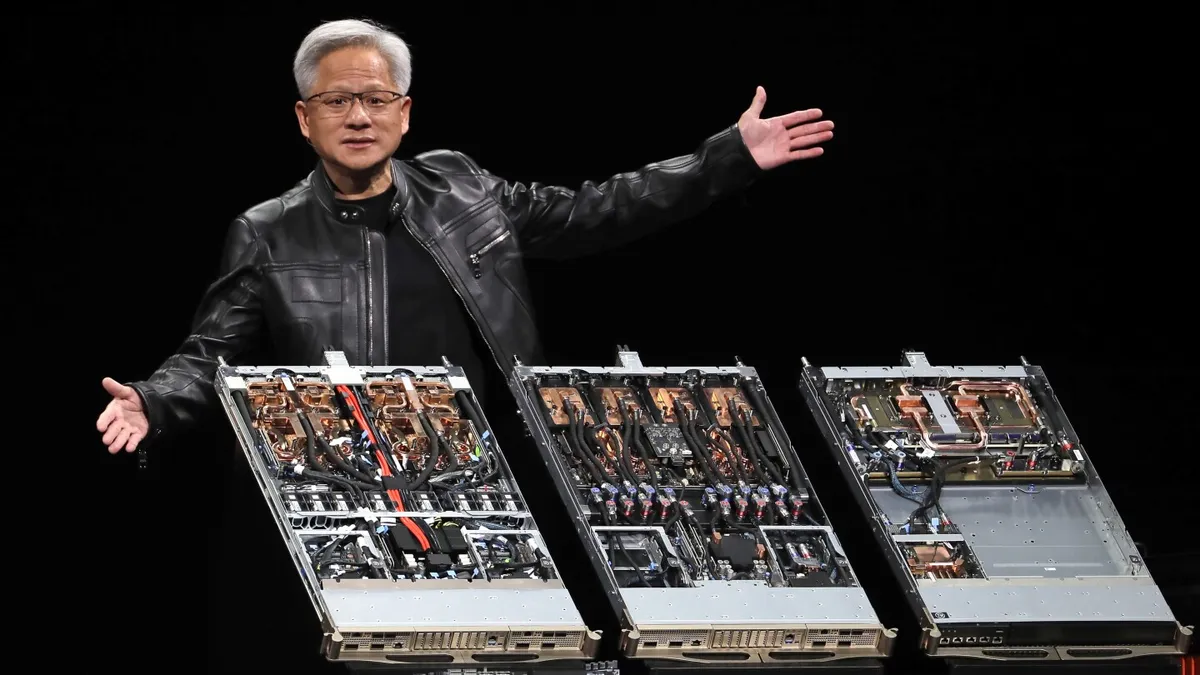
BANGKOK (AP) — In a significant development for the tech industry, Nvidia CEO Jensen Huang announced that the technology giant has received approval from the Trump administration to sell its advanced H20 computer chips to China. This revelation was shared in a company blog post late Monday, and Huang further elaborated on this milestone during an appearance on China’s state-run CGTN television network, with comments also disseminated on X.
According to the blog post, “The U.S. government has assured Nvidia that licenses will be granted, and Nvidia hopes to start deliveries soon.” During a press conference in Beijing, Huang stated, “Today, I’m announcing that the U.S. government has approved for us filing licenses to start shipping H20s.” He emphasized the significance of the Chinese market, noting that half of the world’s AI researchers are based in China. “It’s so innovative and dynamic here in China that it’s really important that American companies are able to compete and serve the market here in China,” he remarked.
Huang's trip comes after recent meetings with Trump and several U.S. policymakers. This week, he is in Beijing to participate in a supply chain conference and engage with Chinese officials. Notably, the broadcast featured Huang’s meeting with Ren Hongbin, the head of the China Council for Promotion of International Trade, who is hosting the China International Supply Chain Expo where Nvidia is a prominent exhibitor.
Nvidia has experienced tremendous success, particularly with the rapid adoption of AI technologies, becoming the first company to achieve a market value exceeding $4 trillion last week. However, the ongoing trade rivalry between the U.S. and China poses challenges for the industry. For several years, Washington has tightened export controls on advanced technologies, expressing concerns that civilian-use technologies could be repurposed for military applications.
The introduction of China’s DeepSeek AI chatbot in January has intensified fears about how advanced chips could bolster China’s AI capabilities. Earlier this year, before Trump commenced his second term, the Biden administration unveiled a new framework for exporting advanced computer chips, aiming to strike a balance between national security and economic interests.
In April, the White House announced restrictions on the sale of Nvidia’s H20 chips and AMD’s MI308 chips to China. Nvidia projected that these tighter export controls could cost the company an additional $5.5 billion. Huang and other tech leaders have been actively lobbying President Trump to reconsider these restrictions, arguing that such limitations compromise U.S. competitiveness in a critical sector within one of the largest technology markets globally. Furthermore, they caution that stringent U.S. export controls may inadvertently drive other countries to embrace China’s AI technologies.
Following the announcement, Nvidia's shares traded on U.S. markets experienced a slight decline of 0.5% in after-hours trading on Monday. Conversely, its shares traded in Frankfurt, Germany, surged by 3.2% early Tuesday, reflecting varying market sentiments regarding the approval and the future of AI technology sales.
In conclusion, this approval from the U.S. government marks a pivotal moment for Nvidia as it seeks to strengthen its foothold in the rapidly evolving Chinese market, while navigating the complexities of international trade relations and AI advancements.